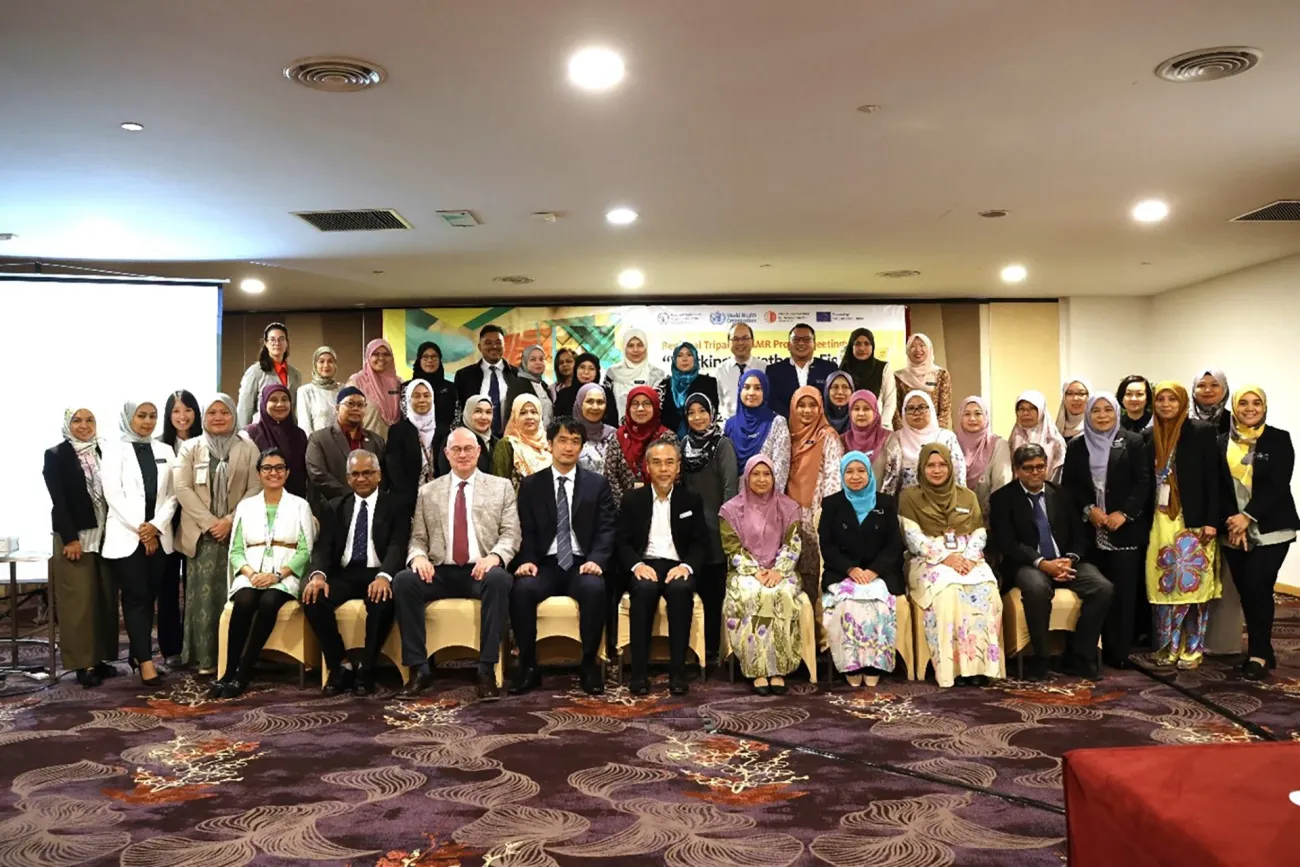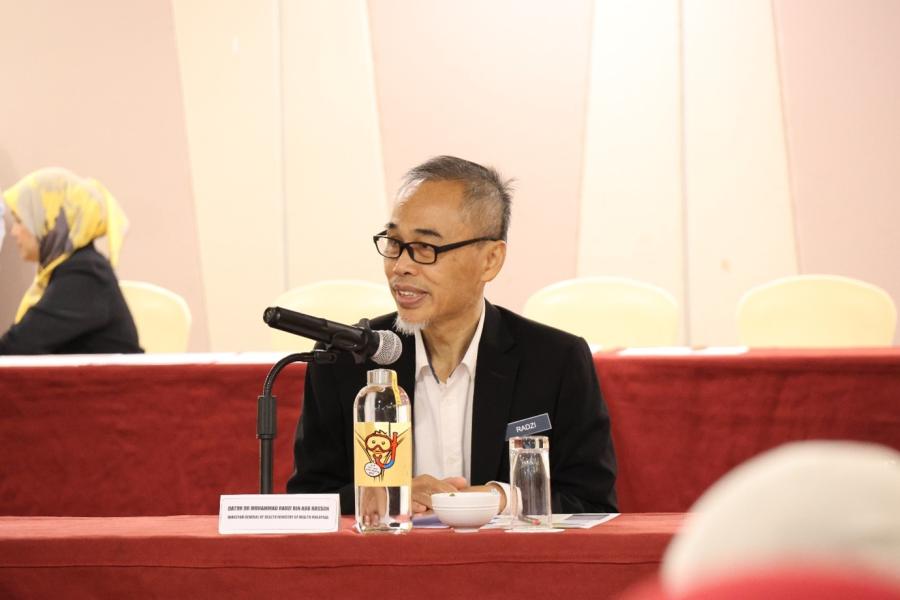Regional Tripartite for One Health partners with the Ministries in Malaysia to fight antimicrobial resistance

Antimicrobial resistance (AMR) poses a significant risk to the effective prevention and treatment of an expanding spectrum of infections caused by bacteria, par
This leads to increases in disease transmission, heightened challenges to manage infections, severe illness, and increased fatality. Additionally, medications may lose their effectiveness, allowing infectious agents to persist within the body, increasing morbidity and the risk of spreading drug-resistant pathogens to others.
In an effort to address AMR, the Regional Tripartite for One Health was formed and comprises of Food and Agriculture Organization (FAO), World Health Organization (WHO) and World Organization for Animal Health (WOAH).
To further strengthen Malaysia’s capacity to tackle AMR, efforts to strengthen the multi-sectoral approach and collaboration between various ministries are envisaged and supported by the Regional Tripartite for One Health.
On 11 September 2023, the Regional Tripartite for One Health together with the Ministry of Health, Ministry of Agriculture and Food Security, Ministry of Natural Resources, Environment and Climate Change (NRECC), and Malaysia One Health University Network (MyOHUN) convened in Putrajaya, Malaysia for an introductory meeting on the ‘Working together to fight antimicrobial resistance (AMR) in Asia’ project.

During the introductory meeting, work plans and regional activities were discussed and presented by Regional Tripartite representatives together with the Ministry of Health. Given that Malaysia has extensive experience in addressing AMR, their involvement can greatly contribute towards the battle in fighting AMR together in the Asia Pacific Region.
“Malaysia has taken proactive steps to combat AMR by establishing the National Antimicrobial Resistance Committee (NARC) in 2017. The committee is responsible for overseeing and coordinating national strategies to contain AMR. In 2022, its mandate extended to encompass the environment and agriculture sectors, as outlined in the Malaysian Action Plan on AMR (My-AP AMR) 2022-2026.” said Dato Dr Muhammad Radzi Abu Hassan, Director General of Health, Ministry of Health Malaysia and co-chair of the NARC during his opening remarks.
“This expansion aims to create a more comprehensive AMR control strategy, in line with guidance from the Quadripartite body comprising WHO, WOAH, FAO, and the United Nations Environment Programme (UNEP),” he added.
The Department of Veterinary Services and the Department of Fisheries Malaysia are moving collectively to prevent and control the spread of antimicrobial resistance in the livestock and aquaculture industry through the implementation of activities that have been drawn up in the Malaysian Action Plan on AMR (My-AP AMR) 2022-2026.
“The opportunity to participate in the Regional Tripartite Project enabled us to improve our capacity and capability in implementing our national action plan and ensuring it is in line with the global action plan, strengthening the surveillance and monitoring of AMR across sectors and the use/consumption of antimicrobials in humans and animals, and strengthening research and innovation on AMR and alternatives to antibiotics, and increasing our preparedness to mitigate the impacts of AMR in both human and animal health sector”, said Dr Rohaya Mohd Ali, Senior Director, on behalf of the Director General of Veterinary Services, Ministry of Agriculture and Food Security (KPKM).
Tackling AMR requires a multifaceted, coordinated approach that extends across sectors, borders, and disciplines. Collaboration is essential to harness the collective knowledge, resources, and efforts of various stakeholders in the fight against this global health threat.
“The engagement of national Institutions beyond the Ministry of Health is key to the success of these efforts and I commend the leadership of all Ministries for their commitment to these efforts,” said Dr Rabindra Abeyasinghe, WHO Representative to Malaysia, Brunei Darussalam and Singapore.
“Let’s remain committed to take on this battle collaboratively to end AMR in the Western Pacific Region, and worldwide.”



